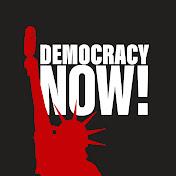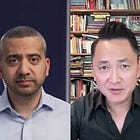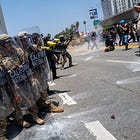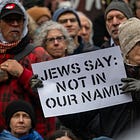AMERICA IS A FASCIST STATE
Fascism is a far-right, authoritarian, and ultranationalist political ideology and movement, characterized by a dictatorial leader, centralized autocracy, militarism, forcible suppression of opposition, belief in a natural social hierarchy, subordination of individual interests for the perceived good of the nation or race, and strong regimentation of society and the economy.
Opposed to anarchism, democracy, pluralism, egalitarianism, liberalism, socialism, and Marxism fascism is at the far right wing of the traditional left–right spectrum
AMERICA IS A ROGUE STATE
A nation or state regarded as breaking international law and posing a threat to the security of other nations.
Opposed to anarchism, democracy, pluralism, egalitarianism, liberalism, socialism, and Marxism fascism is at the far right wing of the traditional left–right spectrum
AMERICA IS A ROGUE STATE
A nation or state regarded as breaking international law and posing a threat to the security of other nations.
DEFEAT FASCISM BEFORE FASCISM DEFEAT YOU
No Kings: Millions Across U.S. Protest Trump's Power Grab, Overshadowing His Military Parade

Democracy Now!
June 16, 2025
VIDEO:
Democracy Now!
June 16, 2025
VIDEO:
https://www.youtube.com/watch?v=IFggnw9NKBs
More than 5 million people joined No Kings Day protests Saturday in the largest day of action against President Trump since his return to office. Protests were held in over 2,100 cities and towns across the country. The protests coincided with a poorly attended, multimillion-dollar military parade on President Trump's birthday, June 14. Democracy Now! spoke with anti-Trump protesters at the Washington, D.C., military parade and at New York City's No Kings protest. Democracy Now! is an independent global news hour that airs on over 1,500 TV and radio stations Monday through Friday. Watch our livestream at democracynow.org Mondays to Fridays 8-9 a.m. ET.
Latest Shows
More than 5 million people joined No Kings Day protests Saturday in the largest day of action against President Trump since his return to office. Protests were held in over 2,100 cities and towns across the country. The protests coincided with a poorly attended, multimillion-dollar military parade on President Trump's birthday, June 14. Democracy Now! spoke with anti-Trump protesters at the Washington, D.C., military parade and at New York City's No Kings protest. Democracy Now! is an independent global news hour that airs on over 1,500 TV and radio stations Monday through Friday. Watch our livestream at democracynow.org Mondays to Fridays 8-9 a.m. ET.
Latest Shows
VIDEO:
Trump Always Wanted To Use the Military To Attack Opponents. Now He’s Doing It
I unpack Trump’s autocratic love for violence against protesters as he escalates in LA, including his praise for China after Tiananmen Square.
by Mehdi Hasan
June 10, 2025
Substack
VIDEO:
by Mehdi Hasan
June 10, 2025
Substack
VIDEO:
It’s not Trump Derangement Syndrome, it’s not hyperbole, and nothing about this is exaggerated – Trump is sending troops to Los Angeles, the city of angels, to crack down on protestors. The same Donald Trump who, during his first term, asked his then defense secretary to shoot protesters with live ammo.
In this 4-minute monologue, I explain how everything Trump is doing now he had already said he’ll do before, except this time, he has the sycophants needed to get it done.
In this 4-minute monologue, I explain how everything Trump is doing now he had already said he’ll do before, except this time, he has the sycophants needed to get it done.
“Were you not paying attention?” I ask, as I bring receipts and recalls interviews, quotes, and headlines that show loudly and clearly how what Donald Trump is doing today, in terms of state-backed military violence against American citizens, builds on everything that Donald Trump has wanted to do since at least the early 1990s.
Watch my full monologue above to hear which dictator Trump has glorified in the past, what he said he would like to replicate from Hitler’s Nazi regime, and how the Tiananmen Square massacre may actually be a case study for our current authoritarian president. (And if you’re in LA next week, on June 19th, join me in person, with some special guests, at our live Zeteo event. Link to tickets below!)
Watch my full monologue above to hear which dictator Trump has glorified in the past, what he said he would like to replicate from Hitler’s Nazi regime, and how the Tiananmen Square massacre may actually be a case study for our current authoritarian president. (And if you’re in LA next week, on June 19th, join me in person, with some special guests, at our live Zeteo event. Link to tickets below!)
This video is being shared without a paywall. If you believe in the work we’re doing and want to see more of it, do consider becoming a paid subscriber.
In case you missed them, here are some of our latest stories:

Mehdi Hasan and Viet Thanh Nguyen
Read full story

The Imperial Boomerang Lands in Los Angeles
Spencer Ackerman
Read full story

How Trump Is Twisting a Law Historically Used Against Jews to Target Pro-Palestine Students
Mia Brett
Read full story
Read full story
The Imperial Boomerang Lands in Los Angeles
Spencer Ackerman
Read full story
How Trump Is Twisting a Law Historically Used Against Jews to Target Pro-Palestine Students
Mia Brett
Read full story
https://www.thenation.com/article/society/trump-politicization-military-warlord/
Donald Trump Is Running the Military Like a Warlord
The quickest way for the United States to become fascist is by politicizing the military.
by Jeet Heer
June 13, 2025
The Nation
No fat soldiers: Trump turns a speech to troops at Fort Bragg into a MAGA rally.(Allison Joyce / Bloomberg via Getty Images)
“No Kings” has become a potent rallying cry in Donald Trump’s second term. On Saturday, protesters in hundreds of American cities will gather under the “No Kings” banner to offer a counter-message to the president who is using the coincidence of Flag Day falling on his birthday to throw a massive military parade to satisfy his ego. The appeal of “No Kings” as a message is obvious: It both invokes the noble small-r republican spirit of the American Revolution and rebukes Trump’s autocratic pretensions.
At congressional hearings on Thursday, Representative Ro Khanna asked Secretary of Defense Pete Hegseth if the administration would respect a Supreme Court decision that declared the deployment of troops into Los Angeles to be illegal. Disturbingly, Hegseth repeatedly refused to affirm that he would follow the law. This also is an example of how the tradition of the military’s being restrained by the Constitution is being replaced by warlordism.
Aside from the danger of dictatorship, Trump’s politization is also harming military morale. On Thursday, The Guardian reported, “California national guards troops and marines deployed to Los Angeles to help restore order after days of protest against the Trump administration have told friends and family members they are deeply unhappy about the assignment and worry their only meaningful role will be as pawns in a political battle they do not want to join.”
Donald Trump Is Hurtling America Into a Catastrophic Middle Eastern War
Jeet Heer
Quentin Skinner and the Contested History of Freedom
Books & the Arts / Samuel Moyn
Jeet Heer
Quentin Skinner and the Contested History of Freedom
Books & the Arts / Samuel Moyn
Young People Have the Most to Lose From Trump’s Budget Bill
StudentNation / Jazmin Kay
Trump makes a curious sort of warlord. Unlike the great military despots of the past—ranging from Alexander the Great to Genghis Khan—Trump was never a soldier himself. He notoriously avoided the draft during the Vienam War. In 1997, he said avoiding STDs while being single was his “personal Vietnam.” In 2015, Trump said about Senator John McCain that “he’s not a war hero.… He’s a war hero because he was captured. I like people that weren’t captured.” Trump associates, including former senior White House advisers, report that in private he refers to soldiers who die in war as “losers” and “suckers.” (Trump denies making these comments.)
But Trump doesn’t have to respect the troops to be commander in chief, nor does he have to have a high regard for soldiers to govern as warlord.
Trump’s warlordism is merely an exaggerated version of a persistent American problem dating to the Second World War: the imperial presidency. As power has been increasingly centralized in the White House, the president has enjoyed an unchecked authority that is closer to that of an autocrat than of a statesman in a democracy. With the invention of nuclear weapons, American presidents became thermonuclear monarchs with the power of life and death over billions. As a mass movement coalesces to oppose Trump’s autocracy and warlordism, it will have to confront not just the lawlessness of one man but also the constitutional crisis created by the imperial presidency.
ABOUT THE AUTHOR:
Jeet Heer is a national affairs correspondent for The Nation and host of the weekly Nation podcast, The Time of Monsters. He also pens the monthly column “Morbid Symptoms.” The author of In Love with Art: Francoise Mouly’s Adventures in Comics with Art Spiegelman (2013) and Sweet Lechery: Reviews, Essays and Profiles (2014), Heer has written for numerous publications, including The New Yorker, The Paris Review, Virginia Quarterly Review, The American Prospect, The Guardian, The New Republic, and The Boston Globe.
StudentNation / Jazmin Kay
Trump makes a curious sort of warlord. Unlike the great military despots of the past—ranging from Alexander the Great to Genghis Khan—Trump was never a soldier himself. He notoriously avoided the draft during the Vienam War. In 1997, he said avoiding STDs while being single was his “personal Vietnam.” In 2015, Trump said about Senator John McCain that “he’s not a war hero.… He’s a war hero because he was captured. I like people that weren’t captured.” Trump associates, including former senior White House advisers, report that in private he refers to soldiers who die in war as “losers” and “suckers.” (Trump denies making these comments.)
But Trump doesn’t have to respect the troops to be commander in chief, nor does he have to have a high regard for soldiers to govern as warlord.
Trump’s warlordism is merely an exaggerated version of a persistent American problem dating to the Second World War: the imperial presidency. As power has been increasingly centralized in the White House, the president has enjoyed an unchecked authority that is closer to that of an autocrat than of a statesman in a democracy. With the invention of nuclear weapons, American presidents became thermonuclear monarchs with the power of life and death over billions. As a mass movement coalesces to oppose Trump’s autocracy and warlordism, it will have to confront not just the lawlessness of one man but also the constitutional crisis created by the imperial presidency.
ABOUT THE AUTHOR:
Jeet Heer is a national affairs correspondent for The Nation and host of the weekly Nation podcast, The Time of Monsters. He also pens the monthly column “Morbid Symptoms.” The author of In Love with Art: Francoise Mouly’s Adventures in Comics with Art Spiegelman (2013) and Sweet Lechery: Reviews, Essays and Profiles (2014), Heer has written for numerous publications, including The New Yorker, The Paris Review, Virginia Quarterly Review, The American Prospect, The Guardian, The New Republic, and The Boston Globe.
BREAKING: Judge Denies Mahmoud Khalil Release, Siding with Trump Admin’s 11th Hour Argument
The development punctures hopes of Khalil’s release after three months in ICE detention.
by Prem Thakker
June 13, 2025
Zeteo
Mahmoud Khalil outside the gates of Columbia University’s campus on April 30, 2024. Photo by USA TODAY Network via Getty Images
On Friday, a federal judge declined to release Palestinian Columbia University student protest leader Mahmoud Khalil from ICE detention.
On Friday, a federal judge declined to release Palestinian Columbia University student protest leader Mahmoud Khalil from ICE detention.
The decision came after the Trump administration changed its legal strategy at the eleventh hour. On Wednesday, US District Judge Michael Farbiarz barred the Trump administration from continuing to detain or attempt to deport Khalil based on Secretary of State Marco Rubio’s determination that Khalil risked US foreign policy, saying such detention is causing Khalil “irreparable harm.” He gave the government until 9:30 am ET on Friday to appeal or respond.
Shortly after the deadline, Khalil’s legal team filed a letter asking for clarity and an official sign-off for Khalil’s release. The judge responded by giving the government until 1:30 pm ET on Friday to respond to Khalil’s team’s filing.
Minutes before the deadline, the Trump administration responded, arguing that Khalil could still be detained for charges the government threw against him after they arrested him, including that he allegedly intentionally misrepresented his employment history on his green card application. Khalil’s lawyers have argued such a charge would not warrant mandatory detention in this manner.
Just over two hours later, Judge Farbiarz, a Biden appointee, sided with the Trump administration, accepting the government’s claim that, actually, it is also detaining Khalil on the second charge.
Khalil's team and family members had hoped he might be able to be free for his first Father's Day as a dad. He wrote a letter to his son, Deen, whose birth he was forced to miss.
"Deen, it was not a gap in the law that made me a political prisoner in Louisiana," Khalil wrote. "It was my firm belief that our people deserve to be free, that their lives are worth more than the televised massacre we are witnessing in Gaza, and that the displacement that began in 1948 and culminated in the current genocide must finally end. This mere belief is what made the state scramble to detain me."
Amy Greer, an associate attorney at Dratel & Lewis and part of Khalil’s legal team, called Khalil’s continued detention “unjust,” “shocking,” and “disgraceful.”
“Mahmoud Khalil was detained in retaliation for his advocacy for Palestinian rights. The government is now using cruel, transparent delay tactics to keep him away from his wife and newborn son ahead of their first Father’s Day as a family,” she said in a statement. Instead of celebrating together, he is languishing in ICE detention as punishment for his advocacy on behalf of his fellow Palestinians.”
Warrantless Arrest
Khalil, a green card holder, was detained by masked immigration agents in the lobby of his Columbia-owned building in March. Khalil’s arrest was the first in a string of abductions that expanded into a much larger operation against student protesters and international students generally.
The Trump administration targeted Khalil on the spurious and previously little-tested grounds that he was compromising US foreign policy – a determination made personally by Secretary of State Marco Rubio. Khalil, as with other students and academics targeted in this way, was not accused of committing an actual crime.
The judge’s decision on Friday comes after the release of several other high-profile targets of the Trump administration, including Mohsen Mahdawi, Rümeysa Öztürk, and Badar Khan Suri.
In early March, plainclothes agents arrested Khalil, telling him his visa had been revoked. He responded that he had a green card. The agents, confused, then said that was revoked too. His attorney, Amy Greer, who was on the phone amid the chaos, demanded a warrant. Agents hung up on her instead.
With no recourse or procedure, ICE agents then took Khalil over 1,000 miles away from his home to a detention facility in Louisiana.
The Trump administration later admitted immigration agents did not have a warrant when they detained Khalil. The government claimed it had the authority to arrest him anyhow, because “it was likely he would escape before they could obtain a warrant,” and because he was a “flight risk.” But security footage shows that Khalil was cooperating the entire time, even seeming to casually chat with the arresting agents.
During his time in detention, Khalil missed the birth of his first baby, as well as Columbia’s graduation. ICE rejected his attempts to be detained closer to his wife and new child.
Now Khalil will remain in detention, as Judge Farbiarz recommends he seek relief in the immigration courts – a system overseen by the same administration that detained him.
The Truth Behind Trump's South Africa Policy Ft. Ambassador Ebrahim Rasool | The Joy Reid Show
The Joy Reid Show
VIDEO:
https://www.youtube.com/watch?v=3LrjfR3RIjw&t=328s
June 11, 2025
In this episode of the Joy Reid Show, Joy Reid discusses the controversial actions of the Trump administration regarding South Africa, particularly focusing on the expulsion of former ambassador Ibrahim Rasool and the narrative of white genocide. The conversation explores the implications of these actions on international relations, the arrival of white Afrikaner refugees in the U.S., and the historical context surrounding these events. Reid critically examines the political motivations behind the white genocide narrative and its impact on both South Africa and the U.S. Takeaways The Trump administration's actions against South Africa have significant implications for international relations. The narrative of white genocide in South Africa is largely unfounded and rooted in white nationalist propaganda. The arrival of white Afrikaner refugees raises questions about their status and the legitimacy of their claims. Historical context is crucial in understanding the current dynamics between South Africa and the U.S. The far right's fear of retribution from formerly oppressed groups drives their political narratives. The SPLC has noted the troubling embrace of white genocide narratives by mainstream conservatives. South Africa's government has been more conciliatory than expected in its post-apartheid policies. The political motivations behind the white genocide narrative are tied to broader issues of race and power. The media's portrayal of South Africa often overlooks the complexities of its socio-political landscape. Joy Reid emphasizes the need for a nuanced understanding of race relations in both South Africa and the U.S.
Chapters:
Introduction to the Interview and Context 00:16
The Impact of Trump's Executive Orders on South Africa 04:04
South Africa's International Relations and Human Rights 07:51
The Arrival of White South African Refugees in the U.S. 11:03
The Myth of White Genocide in South Africa 15:07
Statistical Analysis of Violence in South Africa 20:55
The Political Implications of White Supremacy 24:04 Trump’s Hypocrisy on Race & Refugees 27:50
South Africa's Future Challenges 31:00
Closing Thoughts


















